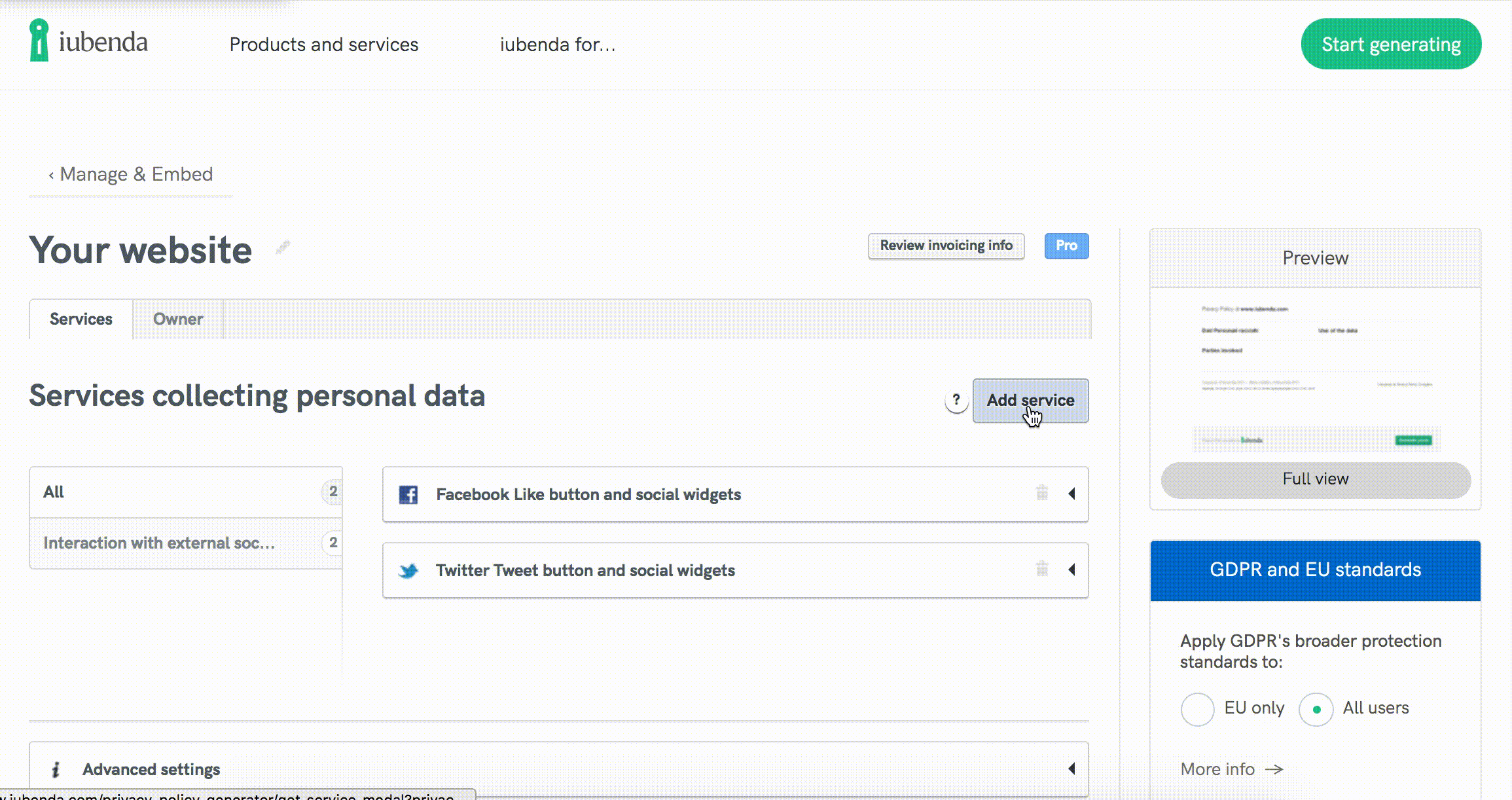Wondering how to write a standard privacy policy for websites? As a business or website owner, having a valid privacy policy on your website is a legal requirement if you are collecting or using personal information.
In this article, we will cover the basics of how to write a standard privacy policy for websites, including what a privacy policy is, why it’s important, as well as the most effective way to comply with this legal requirement.

A standard privacy policy is a document that discloses the ways in which your website collects, uses, shares, and protects personal information. These documents will need to contain specific information, depending on the laws that apply to you.
It is legally required under most countries’ legislations for transparency, which ultimately helps build trust between you and your website’s visitors.
It is essential to have a standard privacy policy that accurately reflects your website’s practices.
A standard website privacy policy is important for a number of reasons:
Our Privacy and Cookie Policy Generator is the simplest solution to generate your privacy policy in just a few clicks!
It’s really that easy: Scan your website with our Site Scanner. Add all the relevant clauses and generate your document. Copy and paste to add your privacy policy to your website! Moreover, unlike static templates, our Generator is supported by an international legal team, that takes care of updating the documents when the laws change. This means that you won’t have to worry about it and just focus on your business. Curious to give it a try?A standard privacy policy for websites should, at the very least, include the following key components:
🚀 Searching for a privacy policy template? Check this out →
It is important to note that there is no standard privacy policy for all websites. Each website is unique and requires a policy customized to its specific needs. However, there are some common elements that most privacy notices include, such as what types of personal information are collected, how it is used, and how it is protected.
Remember that there are tools like iubenda that allow you to create customized privacy policies that are drafted by qualified lawyers and can be updated over time without the need for lawyers every time you need to add or change something.
Writing a privacy policy from scratch can be a daunting task, especially if you have little or no experience with legal documents. Start with a privacy policy generator may be the easiest and most practical way to create your own privacy policy. No, high costs and customized to your particular needs.
When selecting your privacy policy generator, keep the following 3 things in mind:
💡 Keep in mind that the legal landscape around privacy is constantly evolving, and it’s your responsibility as a website owner to stay informed and make any necessary updates to your policy.
A solution like the iubenda Generator, monitors changes in the different legislations and automatically updates the legal clauses to adapt them to the changes, plus the site scanner regularly scans your website and sends you email alerts with what you need to add.
Once generated and ready with all the information regarding your business model, your privacy policy should appear in a prominent place on your website, e.g. in the footer and accessible from the main navigation of your website.
💡 Make sure the policy is easy to find and accessible to all users.
It’s much simpler than you imagine with iubenda! Simply:

Attorney-level solutions to make your websites and apps compliant with the law across multiple countries and legislations.